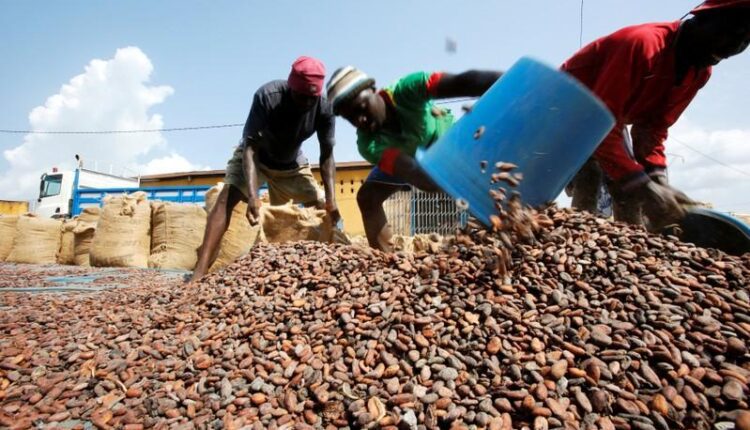The efficient operation of the cocoa sector in Côte d’Ivoire, the world’s leading producer, is adversely affected by the poor state of transport infrastructure, which urgently needs to be improved.
Apart from low farmer incomes, a lack of investment and pests and diseases the cocoa sector in Côte d’Ivoire faces major challenges arising as a result of the poor quality of the logistics system in the country.
The road network is in poor shape, which adds to transport costs and causes delays. Many of the trucks used to transport cocoa are old and poorly maintained and cannot make a good speed. This results in increased fuel use and higher emissions and environmental impact.
But as the authors of a recent report from Amsterdam University of Applied Sciences highlight if these other issues in the logistics chain could be addressed, significant benefits would accrue.
The report, Towards a sustainable agro-logistics in developing countries: the case of cocoa’s supply chain in San Pedro region/Côte d’Ivoire, by Abdel El Makhloufi, Miguel Mujica Mota, Dick van Damme and Victor Langenberg, suggests that Côte d’Ivoire needs to focus on a number of key areas.
These include the inadequate physical conditions of roads in the country; the inefficiency of freight transport by road; unnecessary checkpoints along the road, resulting in delays and congestion; and the low speed of the trucks on the roads.
The findings of the report were presented to representatives of the Port of San Pedro and government officials in early 2019.
If improvements to road infrastructure can be made and the number of checkpoints reduced, it was suggested, the cocoa sector could become significantly more productive and efficient, and its environmental impact would fall as pollution declined.
Congested and difficult port
More than 75 per cent of cocoa grown in Côte d’Ivoire is produced in the southwest region, where the most fertile zones for cultivating cocoa it can be found, especially in Dalao, Divo, Gagnoa, Soubré and San Pedro.
Port of San Pedro acts as a hub for the export of cocoa from the region to the world and as a transit port for the surrounding West African countries of Liberia, Burkina Faso, Guinea and Mali.
It is also an economic engine of the region and an important player in the logistics supply chain.
Due to its geographic location and access to a large hinterland, where the great part of cocoa production takes place, the port has attracted major international processing companies, international exporters, and logistics companies, but it has problems of its own that need to be addressed.
Overall, however, the report from the university characterised the cocoa supply chain in the country as “too long, dysfunctional and with great a diversity of actors, many of who do not add value to the cocoa sector while taking a share of the benefits.”
Dried up investment
“More broadly,” said the authors of the report, “the cocoa sector in Côte d’Ivoire faces major logistics challenges related to the structure and organization of the sector itself, as well as the configuration and management of the supply chain and network, which in turn is closely related to the economy, infrastructure, institutions, environment, socio-cultural and technological domains.”
Côte d’Ivoire made significant progress in the development of its road network in the 1960s and 1970s, but investments in infrastructure slowed down in the late 1990s as a result of a lack of finance and political turmoil.
Spending on infrastructure was less than 5 per cent of GDP in the mid-2000s, which is about half of what many neighbouring West African countries devoted to it.
- Ghana May Postpone Delivery of 250,000 MT of Cocoa Due to Shortage - April 12, 2024
- Ghana Cocoa Farmgate Price To Go Up By 50% - April 4, 2024
- More African Processors Shutdown As Cocoa Shortage Deepens - March 17, 2024
